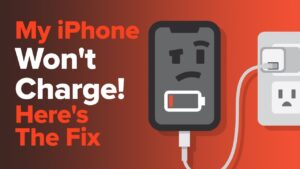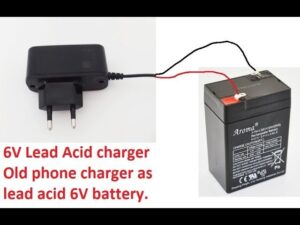Curious about what happens when car battery dies? We’ve got the answer you need! Picture this: you’re ready to hit the road, keys in hand, but suddenly your car won’t start. Panic sets in, and you’re left wondering why this happened and what to do next. Well, fear not! In this article, we’ll delve into the world of dead car batteries, exploring the causes, the effects, and most importantly, the solutions. So buckle up and let us guide you through the ins and outs of what happens when car battery dies.
What Happens When Car Battery Dies
Introduction
When your car battery dies, it can be a frustrating experience, leaving you stranded and unable to start your vehicle. In this article, we will explore in detail what happens when a car battery dies and discuss the various factors that can contribute to a dead battery. We will also provide tips on how to prevent a dead battery and what steps to take when it occurs.
Understanding the Car Battery
Before delving into what happens when a car battery dies, it’s important to understand the basics of how a car battery functions. A car battery is responsible for providing the electrical energy necessary to start the engine and power the vehicle’s electrical components. It acts as a power source and stores energy in the form of chemical reactions.
How Does a Car Battery Work?
A typical car battery consists of a plastic case containing lead plates submerged in an electrolyte solution. These plates are usually made of lead and lead oxide, which react with sulfuric acid in the electrolyte to produce a flow of electrons. This flow of electrons generates electrical energy, which is used to power the vehicle.
Common Causes of Car Battery Failure
Several factors can contribute to the failure of a car battery. Understanding these causes can help you take preventive measures to avoid a dead battery. Here are some common reasons for car battery failure:
- Aging: Car batteries have a limited lifespan and can gradually lose their ability to hold a charge over time.
- Extreme Temperatures: Excessive heat or cold can affect the chemical reactions within the battery, reducing its performance and lifespan.
- Parasitic Drains: Certain electrical components in the vehicle, such as lights or radios, can draw power from the battery even when the engine is off, leading to a drained battery.
- Corrosion: Corrosion on the battery terminals can disrupt the flow of electricity, preventing the battery from charging properly.
- Improper Maintenance: Neglecting routine maintenance, such as not checking the battery fluid levels or failing to clean the terminals, can contribute to battery failure.
Symptoms of a Dead Car Battery
When a car battery dies, it often exhibits specific symptoms that can help identify the issue. By recognizing these signs, you can take appropriate action to address the problem. Here are some common symptoms of a dead car battery:
- No Start: The most obvious sign of a dead battery is when the engine fails to start. Turning the key in the ignition may result in no response or only a clicking sound.
- Dim Lights and Electrical Issues: A dying or dead battery can cause the vehicle’s lights to appear dim or flicker. Other electrical components, such as the radio or power windows, may also exhibit abnormal behavior.
- Strange Smell: In some cases, a failed battery can emit a distinct sulfuric smell, indicating a chemical reaction has occurred.
What Happens When a Car Battery Dies
When a car battery dies, several consequences may occur:
Inability to Start the Vehicle
The primary and most noticeable effect of a dead car battery is the inability to start the vehicle. The engine requires a sufficient amount of electrical energy to ignite the fuel and begin the combustion process. Without a functioning battery, the necessary power is not available, causing the engine to remain idle.
Loss of Electrical Power
A car battery not only starts the vehicle but also powers various electrical components, such as lights, infotainment systems, and climate control. When the battery dies, these components lose their power source, leaving you without functioning lights, air conditioning, or other electronic features.
Malfunctioning Engine Control Unit (ECU)
In modern vehicles, the Engine Control Unit (ECU) plays a crucial role in monitoring and controlling various aspects of the engine’s performance. When a car battery dies, it can disrupt the communication between the ECU and other components, leading to performance issues or even engine failure.
Inability to Charge the Battery
In some cases, a severely discharged battery may become difficult to recharge. It may take longer to bring the battery back to an acceptable charge level, or it may not hold a charge at all. This can require the replacement of the battery, depending on the severity of the discharge.
Potential Damage to Electrical Components
When a battery dies, there is a risk of voltage fluctuations or power surges. These fluctuations can potentially damage sensitive electrical components in the vehicle, such as the alternator, starter motor, or even the ECU. It is essential to address a dead battery promptly to minimize the risk of further damage.
Preventing a Dead Car Battery
While a dead car battery can be inconvenient, there are steps you can take to prevent it from occurring. By following these preventive measures, you can prolong the life of your battery and reduce the chances of unexpected failures. Here are some tips to prevent a dead car battery:
Regular Battery Maintenance
Performing regular maintenance on your battery can help extend its lifespan. This includes checking the fluid levels, ensuring the terminals are clean and free from corrosion, and inspecting the battery for any signs of damage.
Avoiding Parasitic Drains
To prevent a battery from draining due to parasitic loads, it is advisable to turn off all electrical components when the vehicle is not in use. Double-check that lights, radios, or other accessories are turned off before leaving the car.
Keeping the Battery Charged
If you have a vehicle that is not driven frequently, it is beneficial to keep the battery charged using a battery maintainer or trickle charger. These devices provide a slow and steady charge to the battery, ensuring it remains at an optimal state.
Protecting the Battery from Extreme Temperatures
Extreme heat or cold can significantly impact a battery’s performance. Whenever possible, park your vehicle in a garage or shaded area to protect the battery from extreme temperatures. Additionally, consider using insulation or heat shields to minimize the effects of high temperatures.
Experiencing a dead car battery can be a frustrating and inconvenient situation. Understanding what happens when a car battery dies and taking preventive measures can help you avoid such scenarios. Regular maintenance, avoiding parasitic drains, and protecting the battery from extreme temperatures are essential steps to keep your battery in good health. By staying proactive, you can ensure a reliable and long-lasting battery, minimizing the chances of being stranded with a dead battery.
Frequently Asked Questions
Here are some common questions related to what happens when a car battery dies:
- Q: How long does a car battery typically last?
- Q: Can a dead car battery be recharged?
- Q: Can I jump-start my car with a dead battery?
- Q: How can extreme temperatures affect a car battery?
A: The average lifespan of a car battery is typically around 3 to 5 years, but this can vary depending on various factors such as usage patterns, climate, and maintenance.
A: In many cases, a dead car battery can be recharged using a battery charger. However, severe damage or age-related deterioration may require the replacement of the battery.
A: Yes, a jump-start can provide a temporary boost to a dead battery and allow you to start the vehicle. However, it is important to address the underlying issue and recharge or replace the battery as soon as possible.
A: Extreme temperatures, both hot and cold, can impact the chemical reactions within a battery and reduce its performance. Cold weather can make it harder for the battery to deliver power, while excessive heat can accelerate battery deterioration.
Frequently Asked Questions
What are the signs that indicate a car battery is dying?
Some common signs that indicate a car battery is dying include difficulty starting the engine, dim headlights, a clicking sound when turning the key, slow power windows or electronics, and a dashboard warning light.
What happens when a car battery dies?
When a car battery dies, it means that it is no longer able to provide the necessary electrical power to start the engine and operate the vehicle’s electrical systems. As a result, the car will not start, and various components like lights, radio, and power windows may not function properly.
Can you jump-start a car with a dead battery?
Yes, you can jump-start a car with a dead battery. This involves connecting the dead battery to a functional battery, usually from another vehicle, using jumper cables. The electrical charge from the functional battery can then provide enough power to start the car with the dead battery.
What are the possible causes of a dead car battery?
Several factors can cause a car battery to die. These include leaving lights or other electrical devices on when the engine is not running, a faulty charging system, a drained battery due to extreme cold weather, or an old and worn-out battery that needs replacing.
How long does it take to recharge a dead car battery?
The time it takes to recharge a dead car battery largely depends on the charging method used. Using a battery charger, it usually takes several hours to fully recharge a dead battery. Jump-starting a car with a running vehicle can provide enough charge to start the engine, but it is advisable to drive the car for at least 30 minutes to allow the alternator to recharge the battery fully.
Should I replace the car battery if it dies?
If your car battery dies, it is not necessarily an indication that it needs to be replaced immediately. In some cases, it may just need to be recharged. However, if the battery dies repeatedly or is old and no longer holds a charge properly, it is recommended to replace it to avoid future problems.
Final Thoughts
When a car battery dies, it can lead to several inconveniences and potential issues. Firstly, the car will not start, leaving the driver stranded. Additionally, the battery powers essential components such as lights and radio, which will no longer function. The loss of power can also affect the engine, causing it to run poorly or even stall. It is crucial to address a dead car battery promptly to avoid being stuck in inconvenient or unsafe situations. Regular maintenance and keeping jumper cables on hand can help prevent and resolve this common problem.



